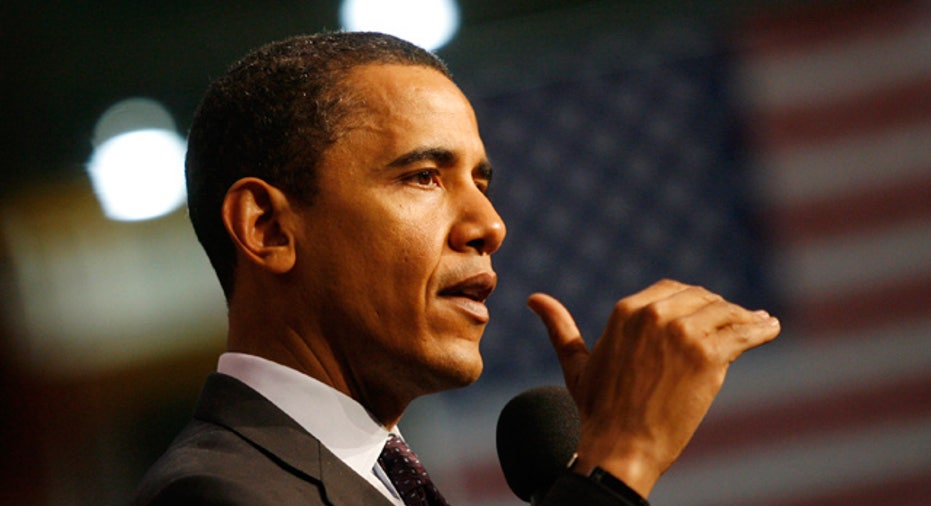Obama May Support Short-Term Debt Extension

The White House shifted gears Wednesday and signalled that President Barack Obama could support a short-term extension of the U.S. borrowing limits as long as it was part of a broader long-term deficit reduction deal.
The switch came a day the so-called Gang of Six senators produced an ambitious deficit reduction plan that Obama latched onto as a way to help break through an impasse in an increasingly grim standoff that has threatened the United States' top-notch credit rating.
``We believe a short-term extension absent an agreement to a larger deal is unacceptable,'' White House press secretary Jay Carney told reporters. ``If both sides agree to something significant, we will support the measures needed to finalize details.''
Obama has previously said he would not sign a short-term extension of the U.S. borrowing limit.
Carney's comments appeared to reflect the fact that time is running out for Congress to pass a deficit reduction deal by an Aug. 2 deadline to avoid a debt default.
Congress must approve an increase in the $14.3 trillion U.S. debt ceiling by then or the government will run out of money to pay its bills. Republicans and Democrats agree that spending cuts should accompany a debt-limit increase to tame mounting debt but have been unable to agree on the details.
White House talks on a comprehensive deficit-reduction deal stalled over tax increases, which Republicans still rule out.
Obama will meet with the Democratic leadership of the Senate and the House at 2:50 p.m. EDT on Wednesday to discuss progress on the debt negotiations, the White House said.
MCCONNELL PLAN
Lawmakers have been scrambling to find a solution, and there is no single plan. The best option remains one put forward by Senate Republican leader Mitch McConnell and billed as a backup plan, which passes responsibility, authority and potentially blame for raising the debt ceiling to Obama.
McConnell's plan would allow Obama to raise U.S. borrowing authority in three separate chunks over the next year. He's been negotiating with Senate Democratic leader Harry Reid, who wants to add a relatively modest package of spending cuts, probably in the range of $1.5 trillion over 10 years.
That might not be enough for Wall Street. The stalemate on debt talks has shaken global markets, and credit rating agencies have said that even if lawmakers raise the debt limit in time, America's top-notch triple-A credit rating will still be under pressure without a broad deficit-reduction plan.
Congressional leaders are looking to the plan by the Gang of Six as a way out of the impasse. A more modest proposal may be needed to avert default by Aug. 2, but the $3.75 trillion Gang of Six plan could help lawmakers reach a broader deal shortly after that to address long-term fiscal problems and alleviate credit raters' concerns.
Initial reaction was positive. Obama seized on the plan as a ``very significant step'' Tuesday and urged congressional leaders to start discussing it. Senators from both parties embraced it while Republican leaders in the House said it contained some good elements.
Investors welcomed the plan Tuesday, driving up the price of 30-year Treasury bonds sharply and pushing global stocks higher. But Wednesday, bond prices eased as Wall Street realized the road ahead remains long.
``We think that an agreement will be made, with a smaller package tied to an extension (of the debt limit) to the end of 2011 or even 2012, leaving the difficult decisions on entitlement reform or tax increases postponed to later in the year or more likely after the November 2012 election,'' said Carl Leahey, senior economist at Decision Economics.
An analyst from Fitch Ratings said it was encouraging that progress appeared to be being made on a substantial U.S. deficit-reduction deal and said the credibility of the bipartisan plan was as important as the overall savings amount. (Additional reporting by Richard Cowan and Thomas Ferraro in Washington and Ellen Freilich in New York; Writing by Deborah Charles; Editing by Will Dunham and Eric Beech)



















